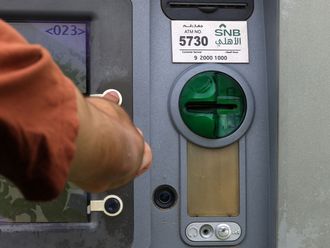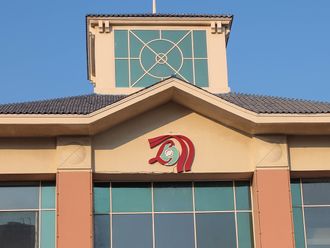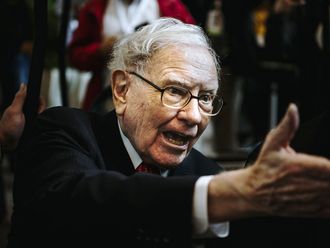Singapore: Singapore may overtake China as Asia's fastest-growing economy this year, increasing the attractiveness of the city state's stocks and putting pressure on policymakers to check inflation with a stronger currency.
Gross domestic product of the Southeast Asian island will rise 10.8 per cent in 2010, according to the median of 13 estimates in a Bloomberg News survey before the July 14 second-quarter GDP report. By comparison, Goldman Sachs, BNP Paribas and Macquarie Group have cut estimates for China to at most 10.1 per cent in recent weeks.
An acceleration in pharmaceutical output and the opening of two casino resorts boosted growth in the first half, the result of Singapore's efforts to diversify sources of expansion beyond electronics exports. The push to bolster services may sustain the economy and support investment that spurred the island's benchmark stock index to outperform counterparts in China, Taiwan, Japan and Australia this year.
"Singapore has unique growth characteristics of its own as a function of having some new areas of growth," said Manraj Sekhon, the London-based head of international equities at Henderson Global Investors, whose firm oversees about $94 billion in assets, including shares in Singapore companies.
Henderson has "meaningful positions" in Sing-apore-based companies such as Wilmar International, the world's largest palm-oil trader, and Keppel, the biggest maker of shallow-water rigs, he said. Its holdings of Singaporean stocks, also including CapitaLand and casino operator Genting Singapore, are "close to the highest positions we've had", he said.
Singapore's benchmark stock index has climbed 28 per cent in the past year, more than Hong Kong's Hang Seng and Taiwan's Taiex, while the Shanghai benchmark has fallen 22 per cent. The Straits Times Index rose 0.3 per cent as of 9:45 a.m. local time.
Policy review
Faster growth may prod the Monetary Authority of Singapore to do more at its next policy review in October, according to Kit Wei Zheng, an economist at Citigroup in Singapore. Wage pressures are increasing and inflation may reach 5 per cent by the end of 2010, from 3.2 per cent in May, he said.
"There are now higher odds for the MAS to tighten further in October via a steeper appreciation" of the Singapore dollar, he said. Citigroup, which predicts Singapore's GDP will advance 12.5 per cent this year, says there are upside risks to its forecasts and the expansion may be as much as 15 per cent.
The central bank uses the Singapore dollar instead of interest rates to manage inflation, and on April 14 allowed a revaluation and shifted to a stance of gradual appreciation. The currency rose as much as 1.2 per cent on the day of the MAS announcement, before slipping the following month as Europe's debt crisis threatened to slow the global expansion. Singapore's $182 billion economy is about 1/24 the size of China's.
Against the US dollar, Singapore's currency rose 0.1 per cent to S$1.3787 as of 9.45 am, a sixth day of gains and compared with a high for the year of S$1.3649 on April 30. It may advance to S$1.36 by year-end and S$1.33 at the end of 2011, according to the median forecasts in Bloomberg News surveys.
Singapore's ties to the global economy mean it's unlikely to escape the impact of any renewed slowdown. Governments in Europe are embarking on austerity programmes to cut budget deficits and households in some of the world's largest economies are holding back spending, clouding the outlook for the rebound.












